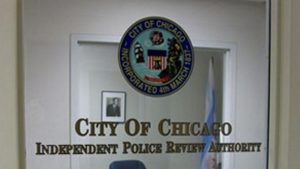As policymakers around the country wrestle with the problem of police misconduct, one suggested reform widely favored by community activists has been the civilian review board. This is puzzling because such boards have a dismal record of performance.
The idea behind civilian review boards is to have a separate, independent entity address citizen complaints of police abuse. Instead of the police department investigating itself, boards would provide external community oversight. The concept has always been appealing. Many cities embraced the model to address complaints about police harassment of racial minorities during the civil rights movement of the 1960s.
In practice, however, civilian review boards have proven to be an ineffectual check against police misconduct. The boards are commonly created in the aftermath of a police scandal, but after the photo-op announcement regarding the establishment of the new board, where politicians take credit for tackling a difficult problem, the news cycle shifts and public attention is directed to other subjects. That’s when the local power brokers in city government rig the boards to fail.
Some boards, for example, are confined to reviewing the findings of the police department’s own internal affairs investigations. The trouble here is that the police can game the system by simply ignoring most citizen complaints. If the department only investigates a small fraction of complaints, the citizen review board will only review that tiny fraction. This happened in Portland, where it came to light that the police department dismissed two-thirds of the complaints it received without inquiry. Since most of the complaints were off-limits, the local review board could offer little in the way of effective oversight.
Because of the selection process for members, many boards lack true independence. The rules vary across jurisdictions, but the mayor or police chief commonly appoint a majority of the board. The rationale is that the police department has to be represented in deliberations that will affect its personnel and operations. However, those appointees are too often beholden to the very people who run the department.
When police brutality lawsuits are filed against the city, the mayor or chief may decide to contest the allegations in court. In such instances, they do not want the civilian review board to make any findings against the police officers involved. In Minneapolis, there was a legislative proposal to give the police chief veto power over board investigations in order to nip any “trouble” in the bud.
Another way power brokers have undermined the boards has been by depriving them of the funds needed to do their work properly. Without investigators and staff to dig into citizen complaints, backlogs occur. What’s more, some jurisdictions have rules in place that say if the board does not sustain a complaint within a year, the case must be dismissed. Thus, many complaints are tossed away, not because they were unfounded, but only because the board did not sustain the complaint fast enough. Chicago Mayor Rahm Emanuel had to allay funding concerns recently with his reform package. Emanuel agreed to a minimum guaranteed funding level for his newly proposed Civilian Office of Police Accountability. It remains unclear how a political compromise this year can bind Chicago mayors and council members.
Even when civilian review boards are able to investigate cases thoroughly and independently, they lack the power to impose discipline in the cases where police officers clearly abused their power. The boards can only make recommendations to the chief that certain officers ought to be disciplined. Police chiefs can then ignore the boards. In 2012, police commanders in New York City rejected board recommendations in 90 percent the cases.
Given the historical record, it is a bit odd to see civil liberties groups and community activists concerned about police abuse agitate for more citizen review boards. Such calls amount to the triumph of hope over experience. In cities where police organizations have been abusive and dysfunctional, community activists probably believe that any check on the police department has to be helpful.
Not necessarily.
Ineffectual boards can provide the local power brokers with political cover against media scrutiny and community resentment over police misconduct.
The hard truth is that police misconduct is a deep-seated problem in many of our cities. Concerned citizens should not place their hopes in a new citizen review board or a new police chief. In many jurisdictions, officials choose to placate the police unions which stymie reform efforts. Until there is a serious commitment to maintaining professional and ethical standards in policing, the misconduct problem will fester.
Lynch directs the Cato Institute’s National Police Misconduct Reporting Project. Follow him on Twitter @CatoTimLynch


